The Art and Heritage of Regional Pocket Knife Collections
As lovers and collectors of Italian arts and crafts, we often go out of our way to bring you hidden treasures from our country.
One of our most recent discoveries is the rich tradition of Italian pocket knives. Over the centuries, nearly every Italian region has contributed to this unique form of craftsmanship.

The geography of Italy has greatly influenced its people and their activities, leading local artisans to create specialized tools that suit the specific tasks of their communities, whether in farming, hunting, or breeding. Consequently, knife makers from different areas have designed blades tailored to meet everyday needs, reflecting the lifestyles of our ancestors.
While exploring the fascinating history of Italian knife making, we came across the Berti and Consigli regional pocket knives—two outstanding collections of meticulously crafted blades. These collections not only celebrate Italy’s regional diversity but also serve as powerful symbols of the enduring legacy of Italian artisanship and cultural richness.
Berti and Consigli, two small yet prestigious Tuscan companies, have embraced the centuries-old tradition of Italian knife-making. Over the past hundred years, they have hand-forged some of Italy’s finest knives, ranging from functional kitchen and steak knives to exquisite pocket knives.
Their craftsmanship reflects the time-honored methods that embody the essence of “Made in Italy”: exceptional quality, stunning artistry, and rich heritage.

Both companies are located in Scarperia, a charming town north of Florence, known for its blade-making expertise dating back to the 1400s.
The pocket knives in the Berti and Consigli collections are not just tools; they are handcrafted masterpieces made from high-quality stainless steel and exquisite materials like ox and buffalo horn, boxwood, snakewood, olive wood, and luxurious lucite. Investing in these pocket knives means owning a piece of Italian history and craftsmanship, ensuring that the art of knife-making continues to thrive for generations to come.
Here is a short overview of the Italian pocket knives we have hand-picked for you.
Anconetano Pocket Knife by Consigli
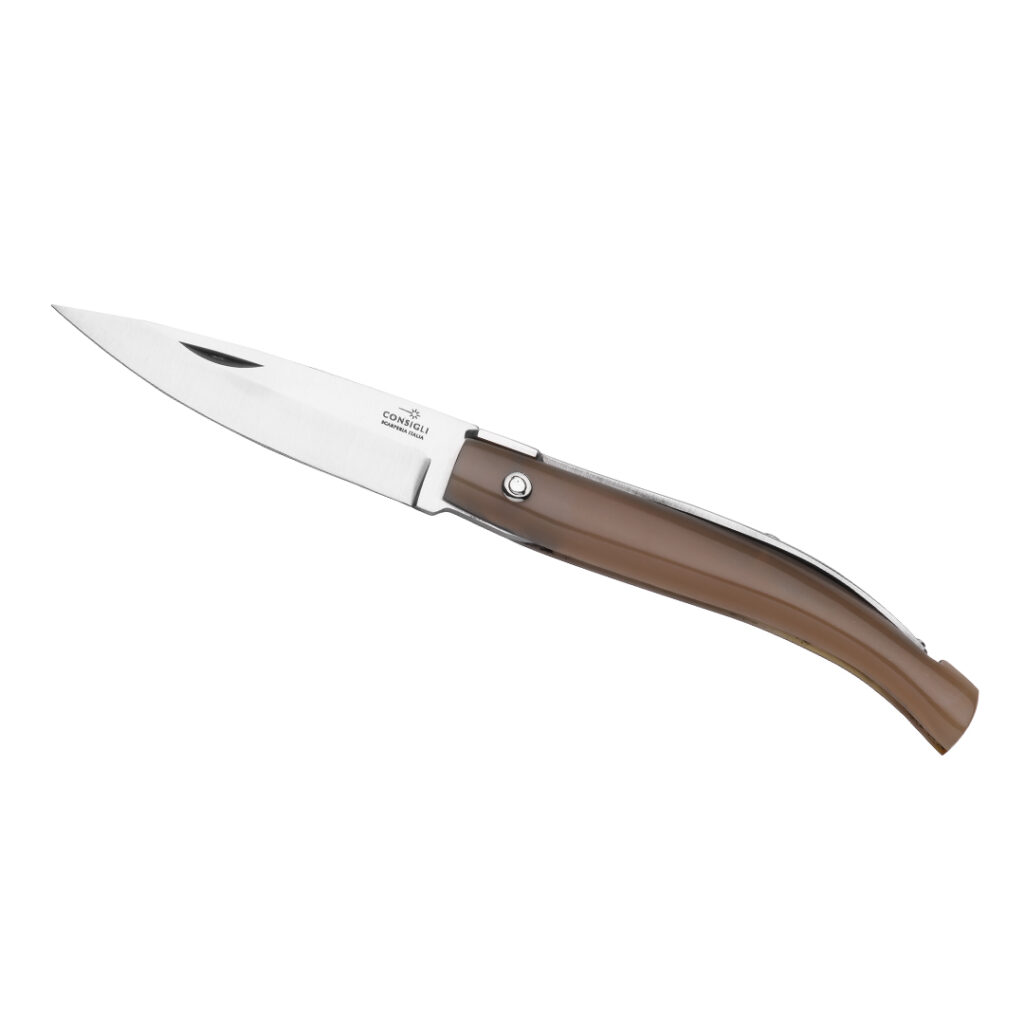
Region: Marche
Handle material: ox horn
The Anconetano pocket knife was traditionally used by fishermen to mend fishing nets. It bears a flat spring on its handle’s spine, which makes it easy to clean. When the knife is closed, you can see a small notch in the metal spine. This notch was once used for mending fishing nets.
Calabrese Pocket Knife by Consigli
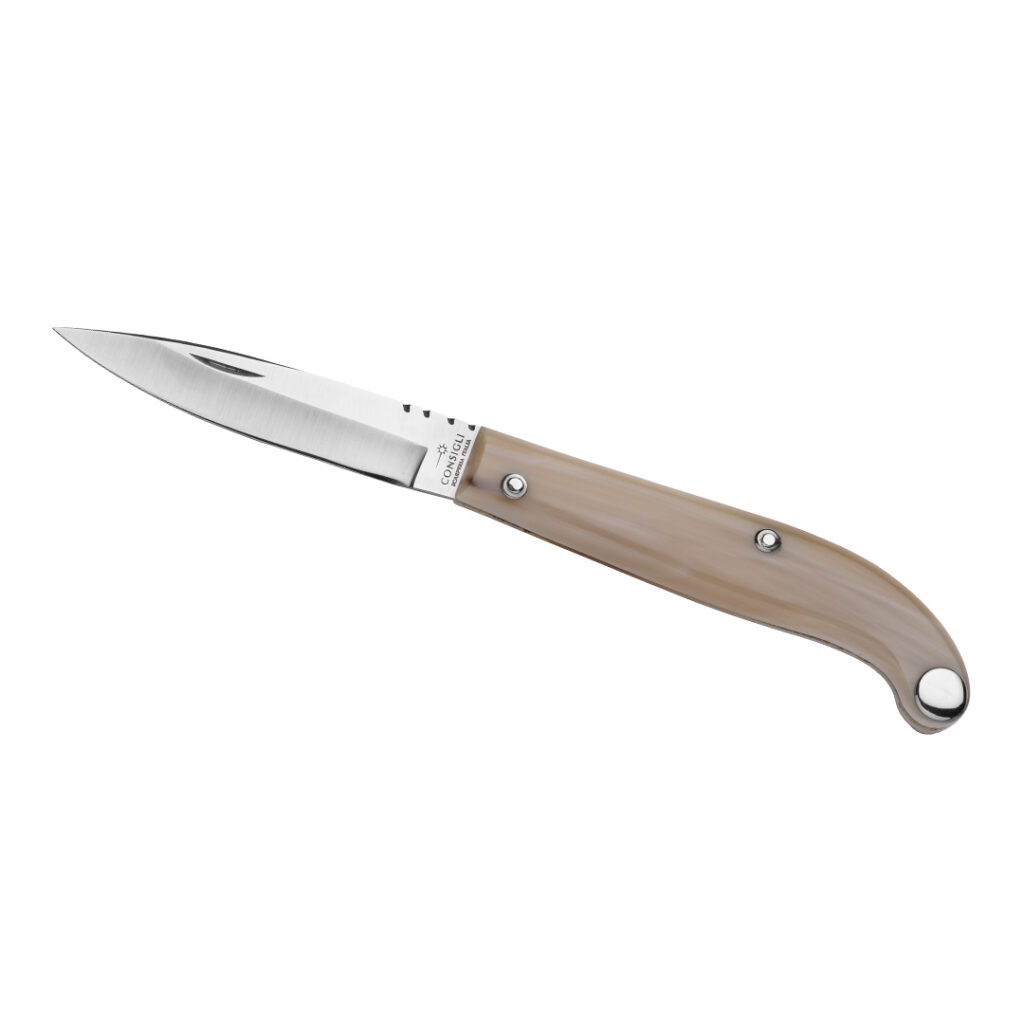
Region: Calabria
Handle material: ox horn
The Calabrese pocket knife was initially used by brigands, who roamed the rugged terrain of Calabria. They were considered heroes by the local people for their role in the Italian unification process. After the end of the brigantage, the Calabrese knife evolved into a well-liked and adaptable tool for both work and dining purposes.
Castrino Pocket Knife by Berti
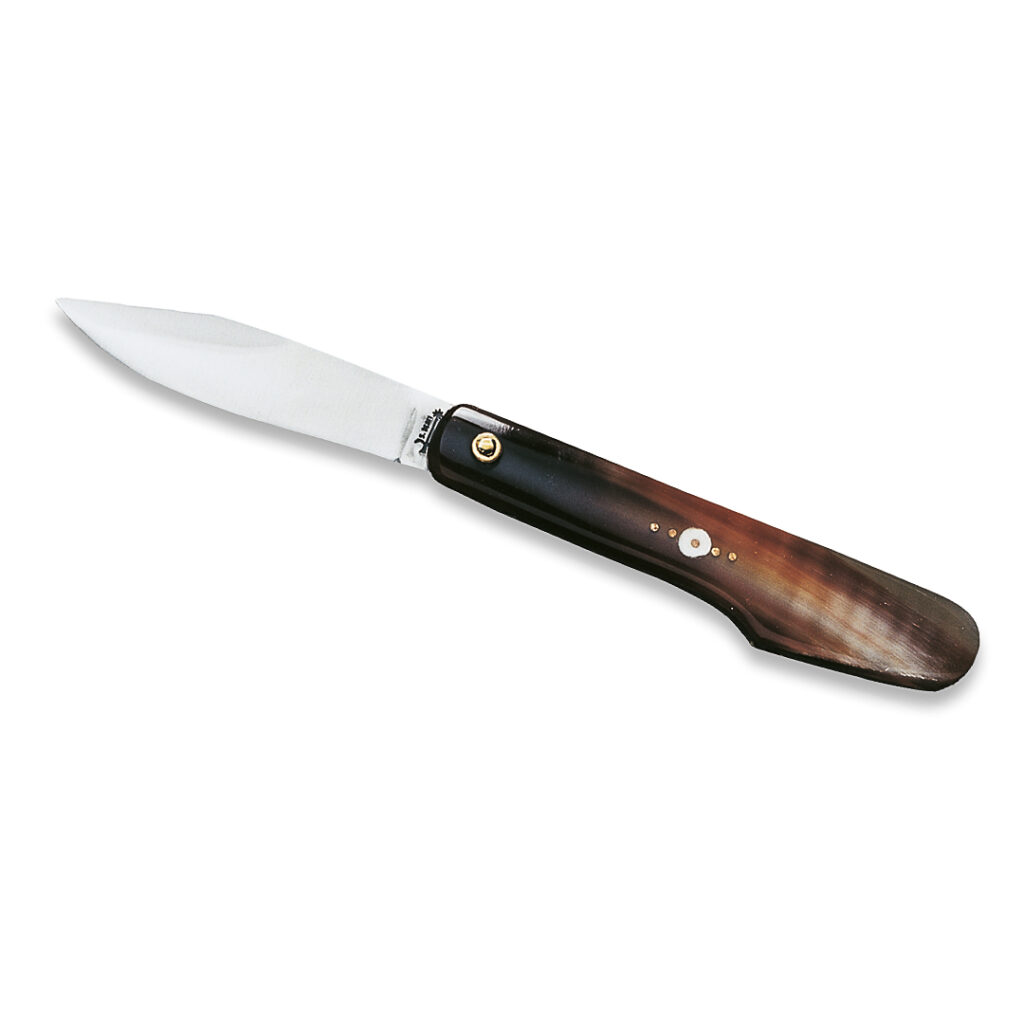
Region: Lombardy
Handle material: ox horn
The Castrino pocket knife was originally created as a tool for veterinary surgeons to perform minor procedures, as well as for farmers to use during castration – hence its name. The knife was traditionally used in a half-open position, with the thumb placed on the back of the blade to ensure precision during cuts.
Convivio Pocket Knife by Berti
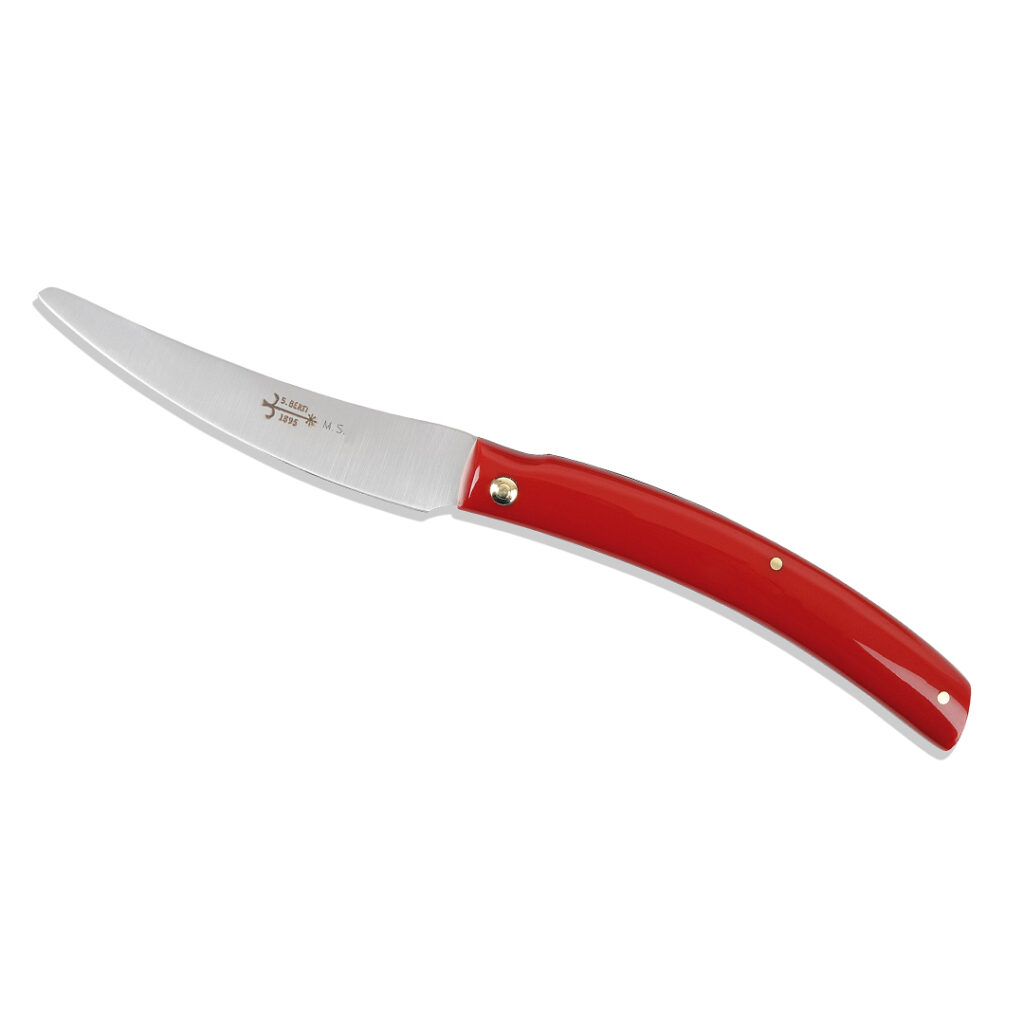
Region: Tuscany
Handle material: available in ox horn and lucite
The Convivio pocket knife is a well-balanced tool, perfect for any lifestyle. It is equally loved by foodies who want a personal knife when dining out and adventure seekers. It was designed by Berti as a contemporary addition to their vast array of traditional pocket knives.
Fiorentino Pocket Knife by Berti and Consigli
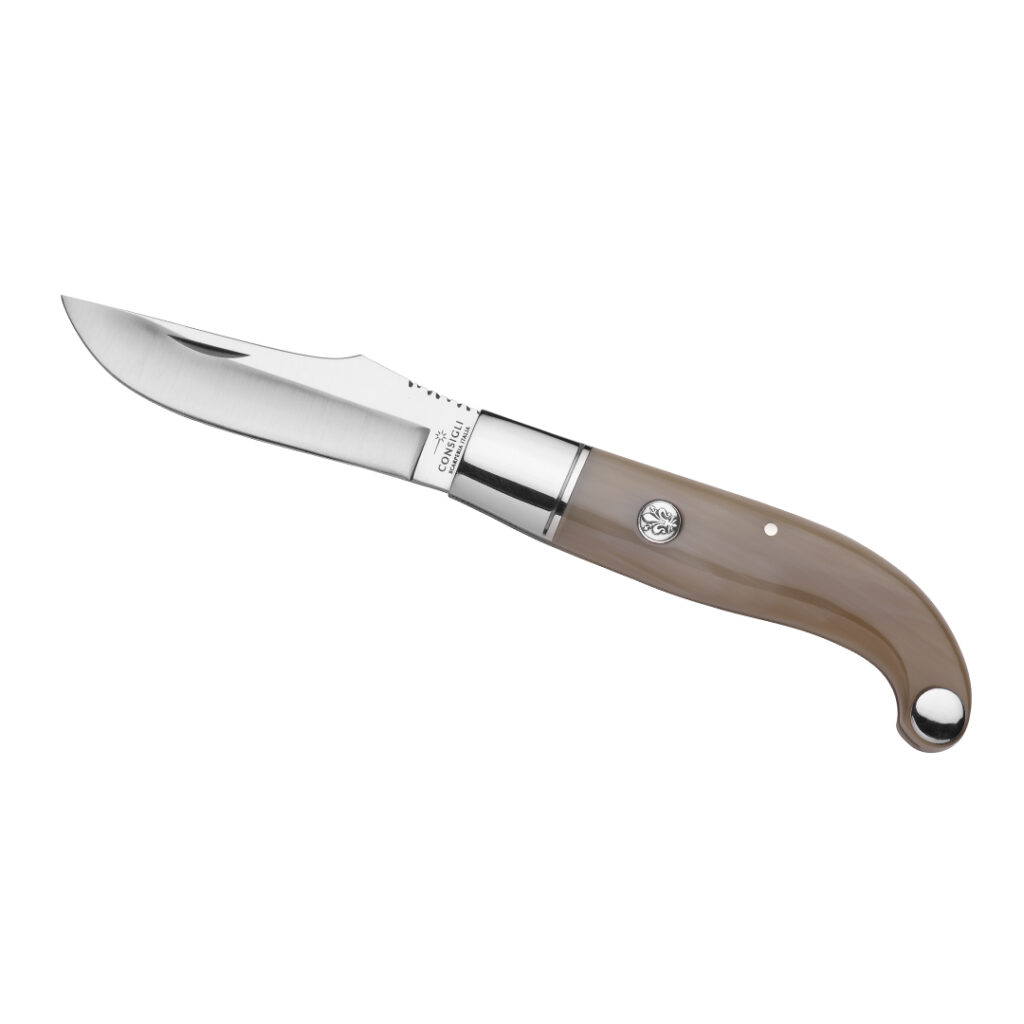
Region: Tuscany (Florence)
Handle material: ox horn
The Fiorentino folding pocket knife is an elegant, lightweight knife with a keen cutting edge. It was designed to be a multifunctional knife for farming-related tasks. It is crafted with a bolster, a thick junction between the handle and the knife blade, which strengthens the knife and enhances its durability and balance.
Gobbo Pocket Knife by Berti and Consigli
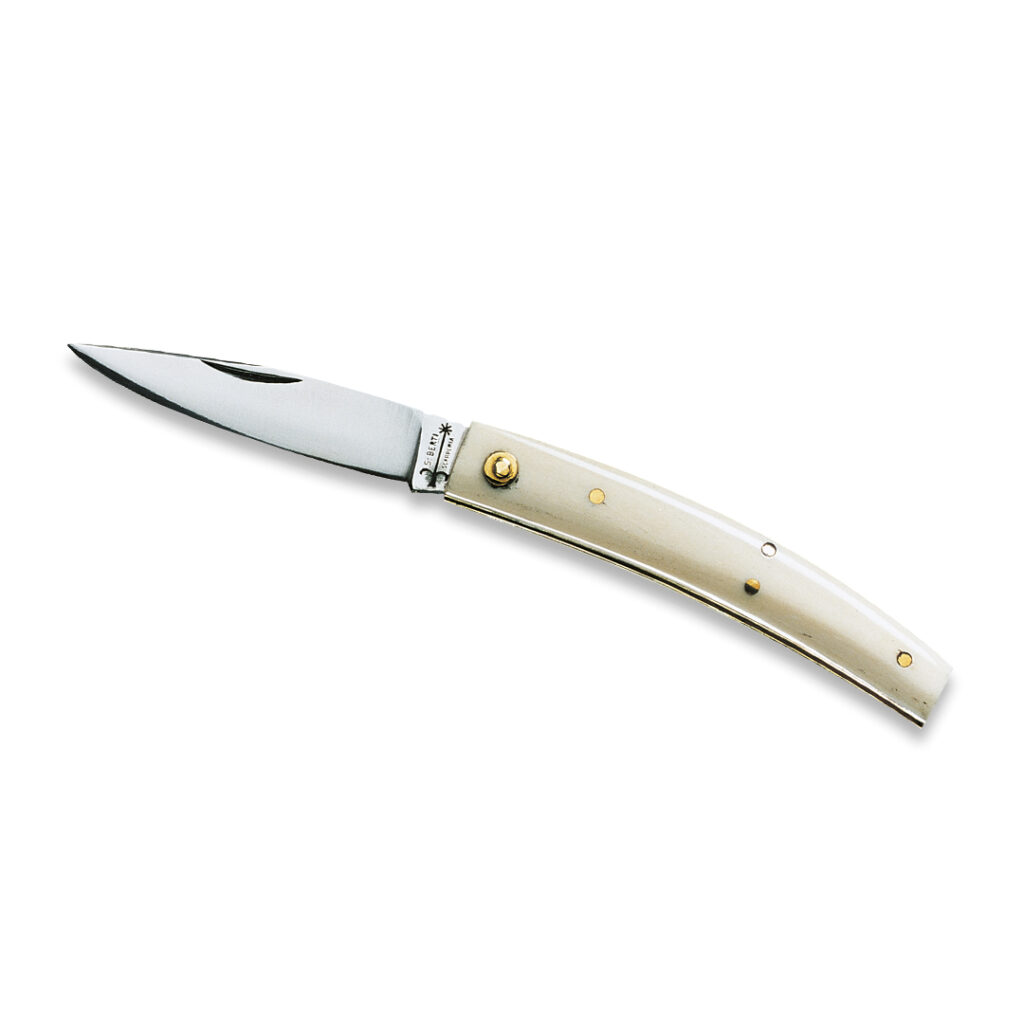
Region: Abruzzo
Handle material: handle available in ox horn, bone and lucite
The Gobbo folding pocket knife has a distinctive curved handle, hence its name “gobbo”, in Italian hunchback. It is a light and versatile blade, typically used by shepherds and peasants for fieldwork. Today, it can be used for any task, from dining to gardening.
Maremmano Pocket Knife by Berti and Consigli
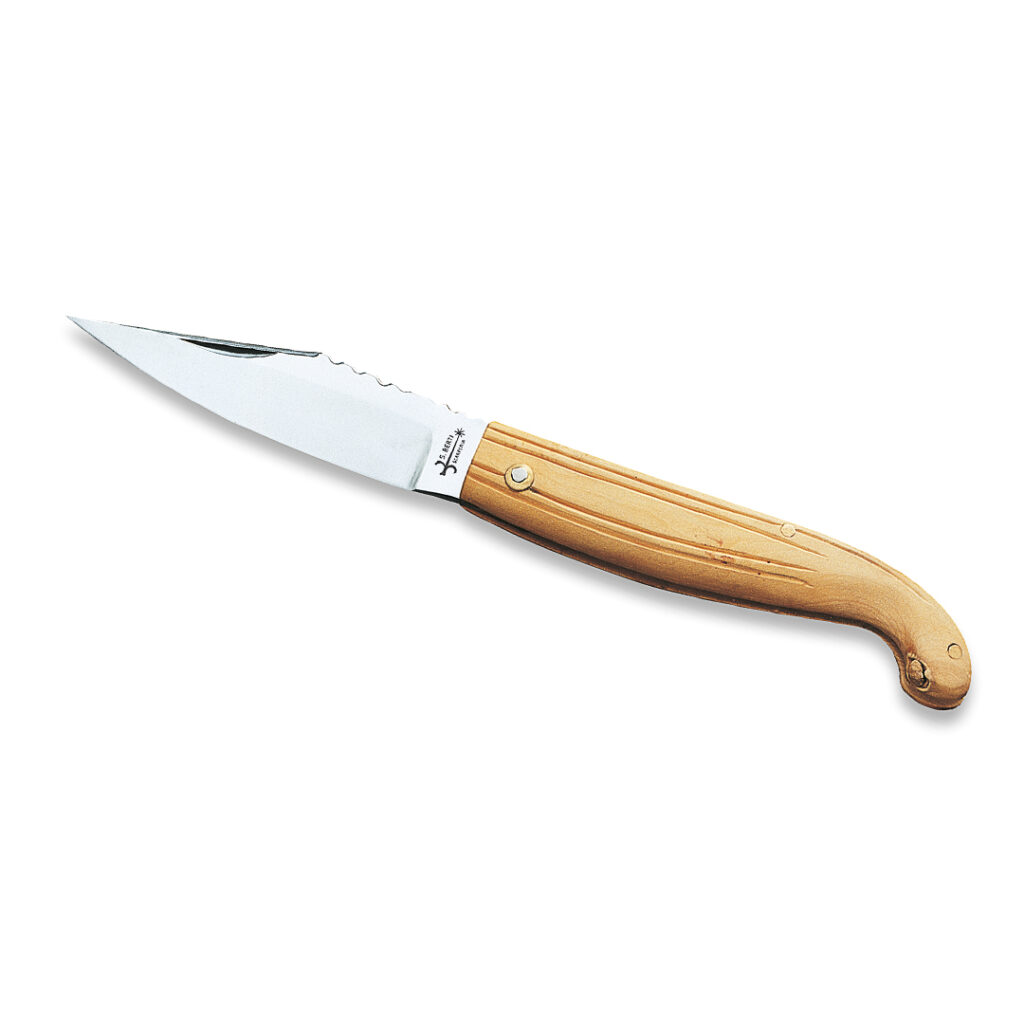
Region: Tuscany and Lazio
Handle material: handle available inox horn and boxwood
The Maremmano pocket knife’s distinctive blade recalls the shape of a leaf. It was originally from the Maremma, a coastal area between Lazio and Tuscany, and is well known for its cattle ranching and the production of excellent cheese and the famous Fiorentina steak.
Mozzetta Pocket Knife by Consigli
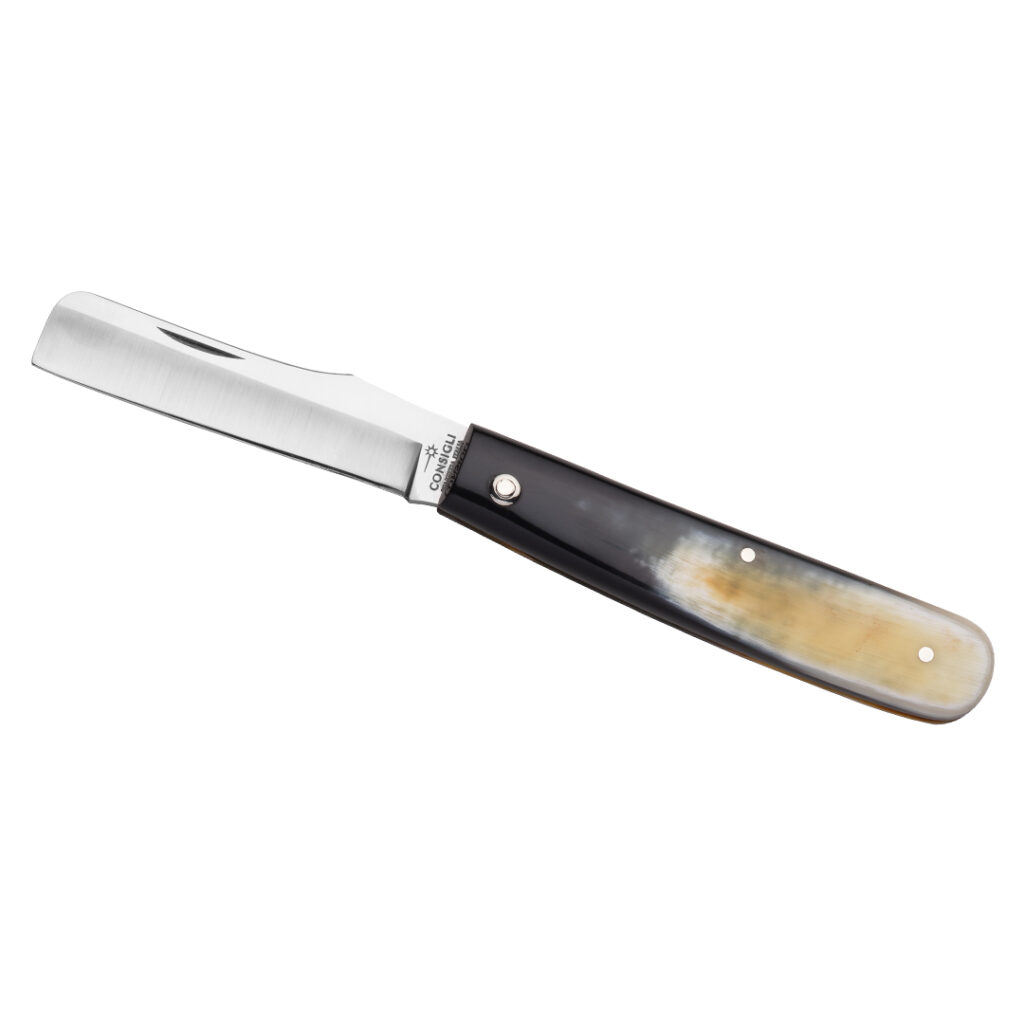
Region: Sardinia
Handle material: ox horn
The Mozzetta pocket knife became very popular in Italy in 1908 after the enactment of a law that prohibited carrying knives with pointed blades longer than 4 cm – less than 2 inches. The term “mozzetta” is derived from the Italian verb “mozzare” meaning “to cut off or to crop.” This pocket knife is ideal as a cigar cutter.
Caccia Mugellano Pocket Knife by Consigli
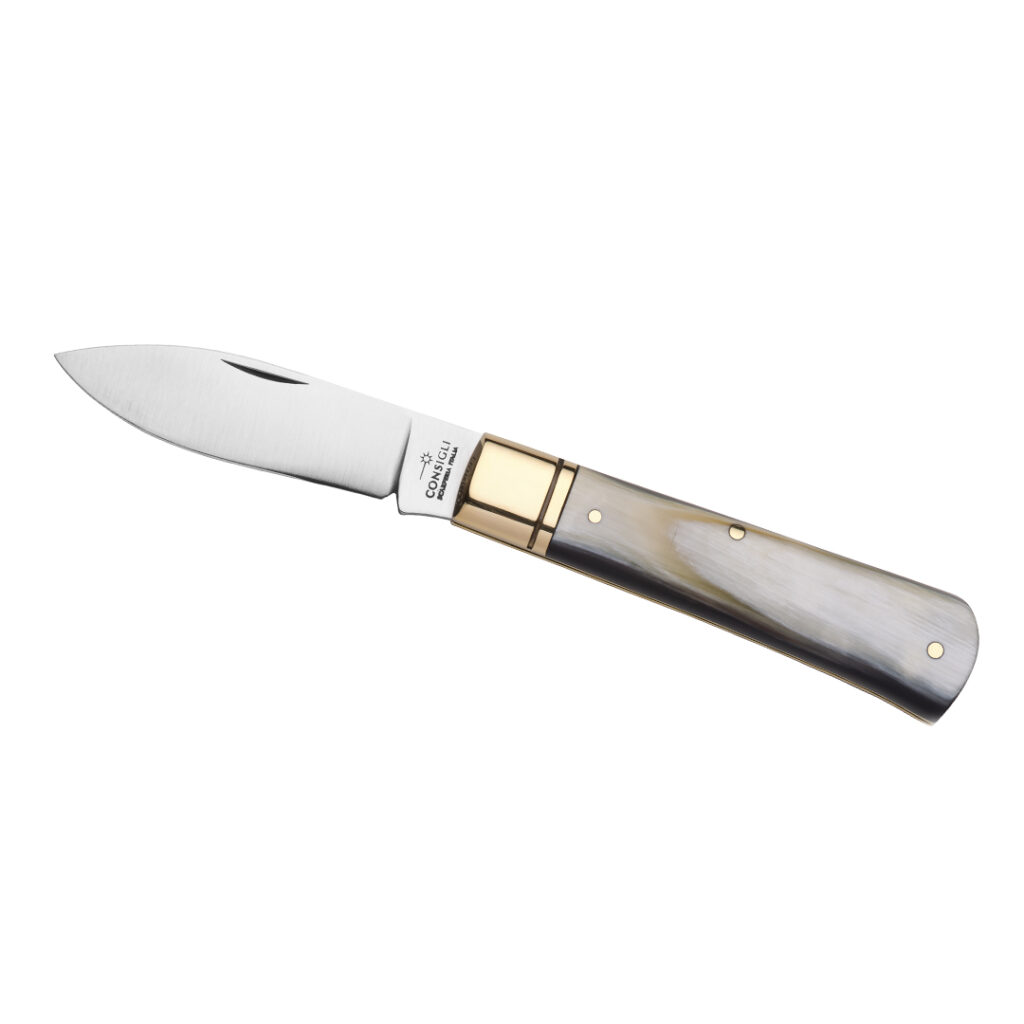
Region: Tuscany
Handle material: ox horn
The Caccia Mugellano pocket knife features a sturdy, broad, leaf-shaped blade and a handle that ends with a slight “beak”. It has been a popular hunting knife in Tuscany since the early 20th century.
Napoletano Pocket Knife by Berti
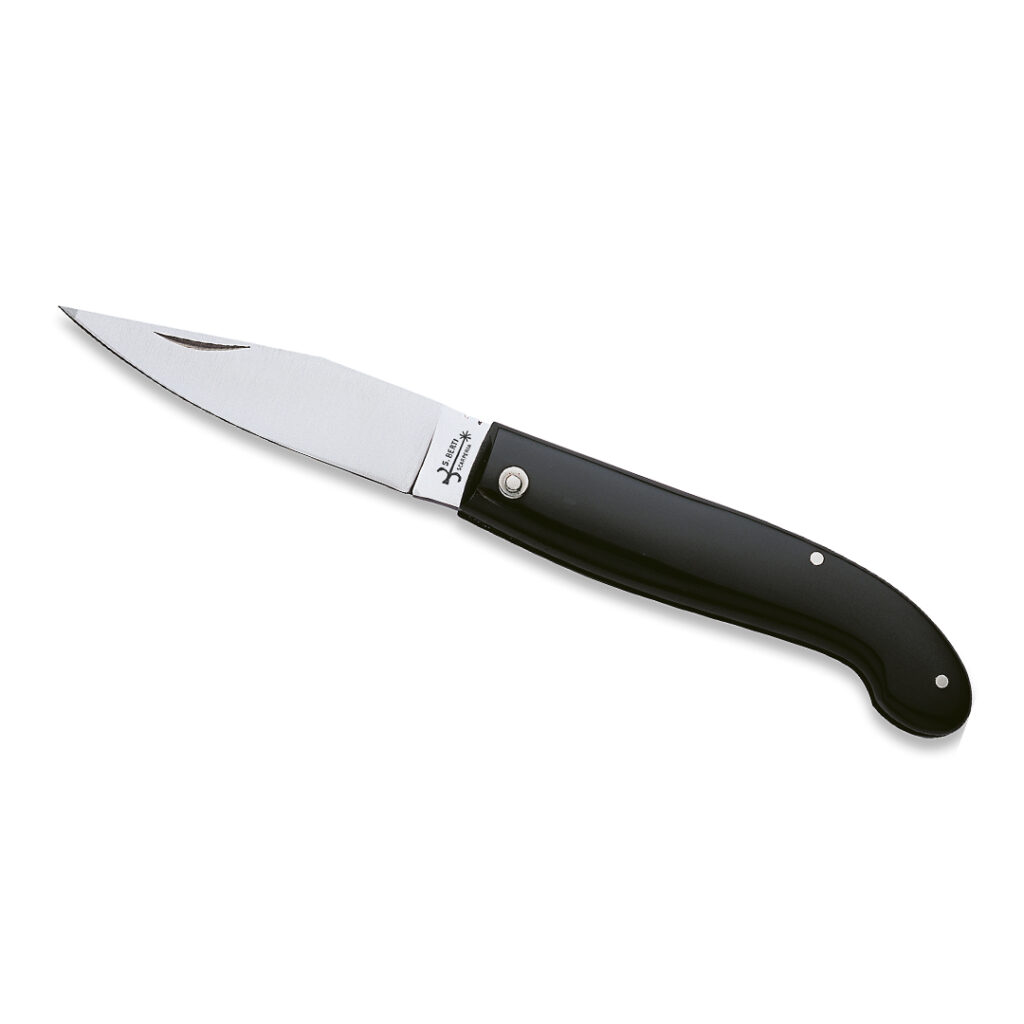
Region: Campania
Handle material: ox horn
The Napoletano pocket knife features a heavy-duty sharp blade and tip, as well as a monolithic handle. It was designed for hunting and farming due to its reliable and sturdy nature. The knife boasts a solid buffalo horn handle and is crafted in a way that allows both the tip and the blade to cut with ease.
Rasolino Pocket Knife by Consigli
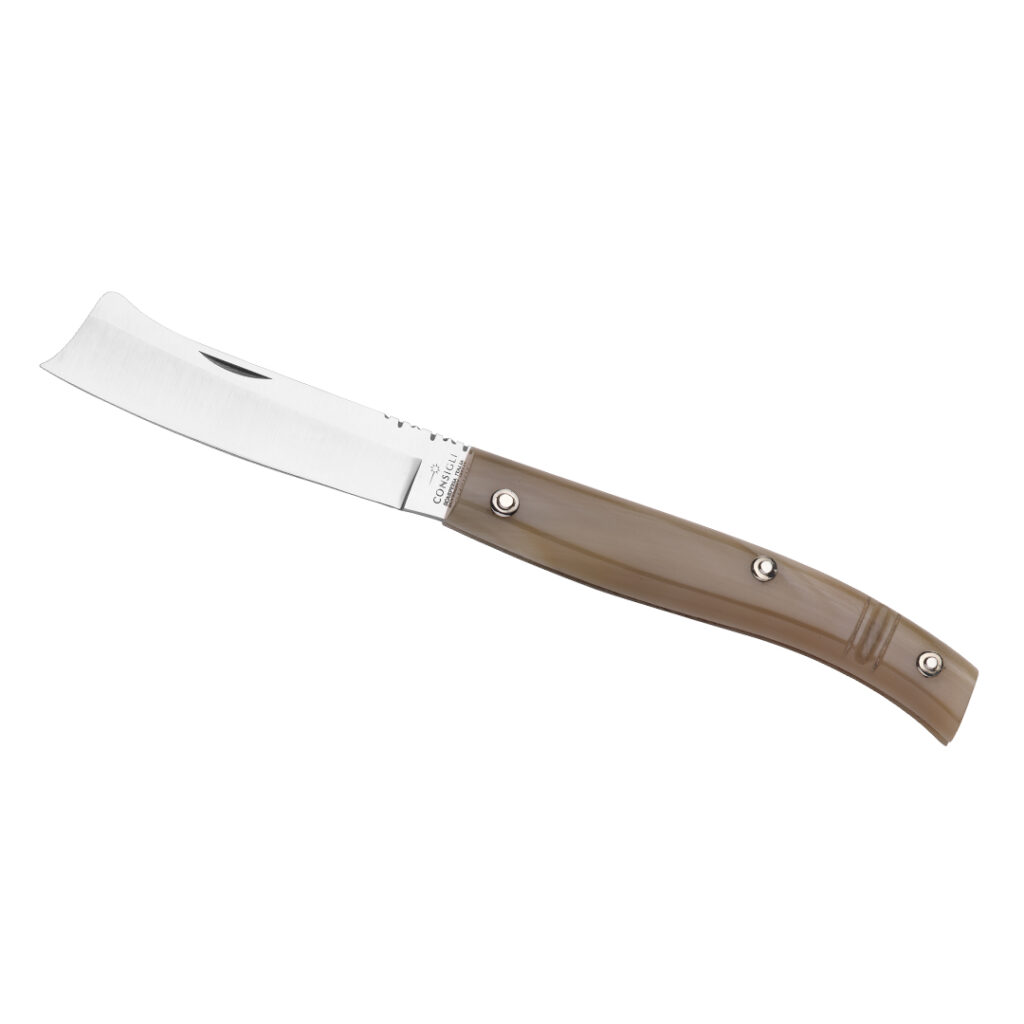
Region: Sicily
Handle material: ox horn
The Rasolino pocket knife, just like the Sardinian Mozzetta, became popular in Italy in 1908 after the enactment of a law that prohibited wearing pointed knives. It features a unique cut-off, razor-shaped blade, hence its name.
Roncola Pocket Knife by Berti
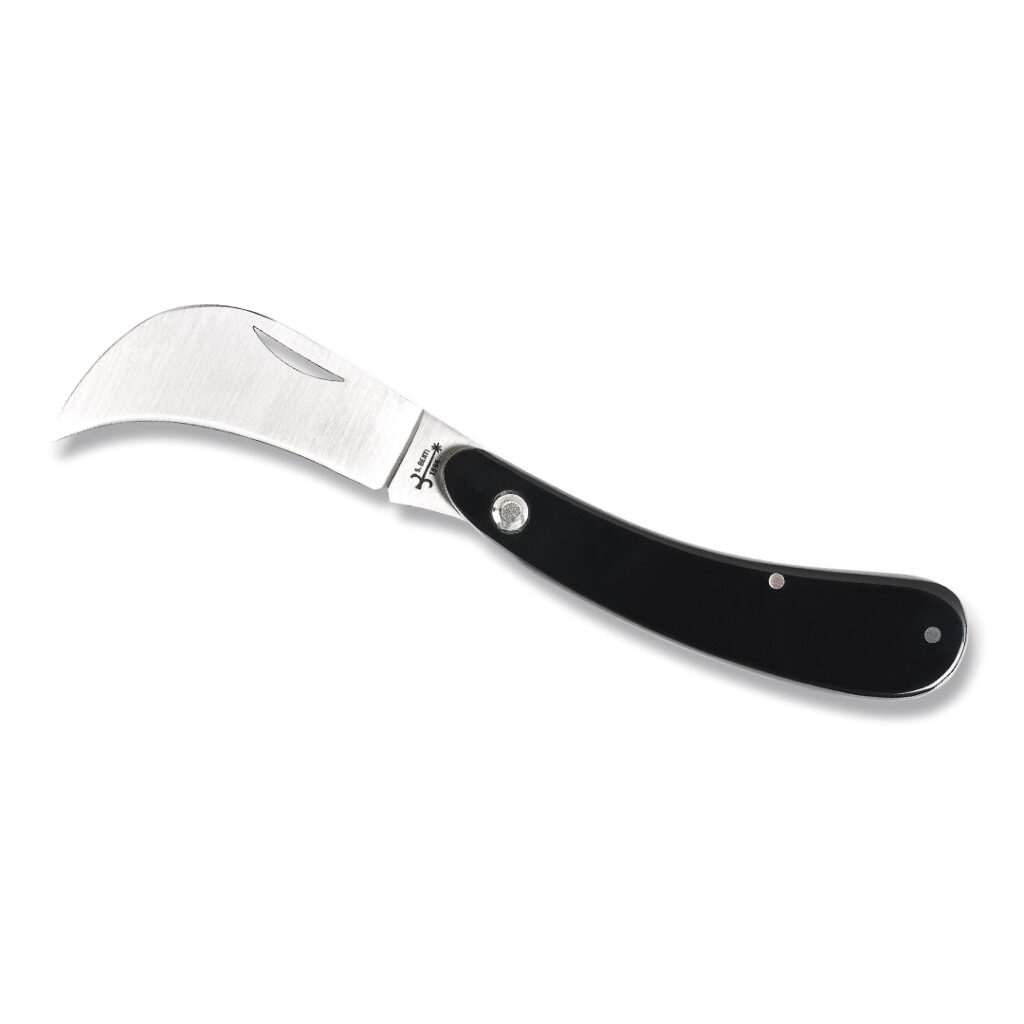
Region: Piedmont and Lombardy
Handle material: available in ox horn and Lucite
The Roncola pocket knife features a classic foraging profile. It was designed for farming and gardening tasks, such as grafting, pruning and harvesting fruit and vegetables. This knife features a bolster, a thick junction between the handle and the blade, providing strength and balance. Ideal for mushroom hunters!
Senese Pocket Knife by Berti and Consigli
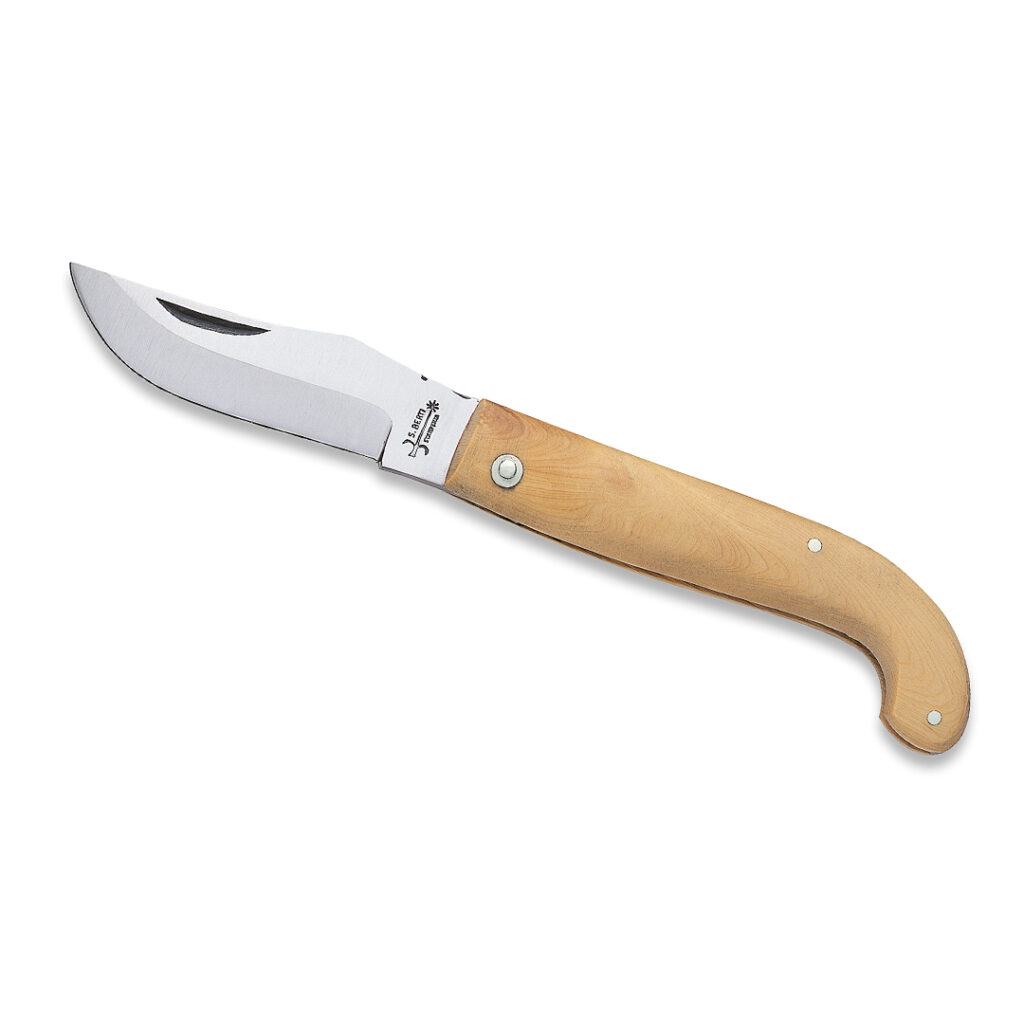
Region: Tuscany (Siena)
Handle material: available in ox horn and boxwood
The Senese pocket knife is a lightweight, simply fashioned and sturdy knife from Siena, Tuscany. It is a highly adaptable tool that can be used for a wide range of daily tasks. It features a sharp scimitar blade that is similar to those found on other Tuscan knives like the Fiorentino and the Zuava.
Tre Pianelle Pocket Knife by Consigli
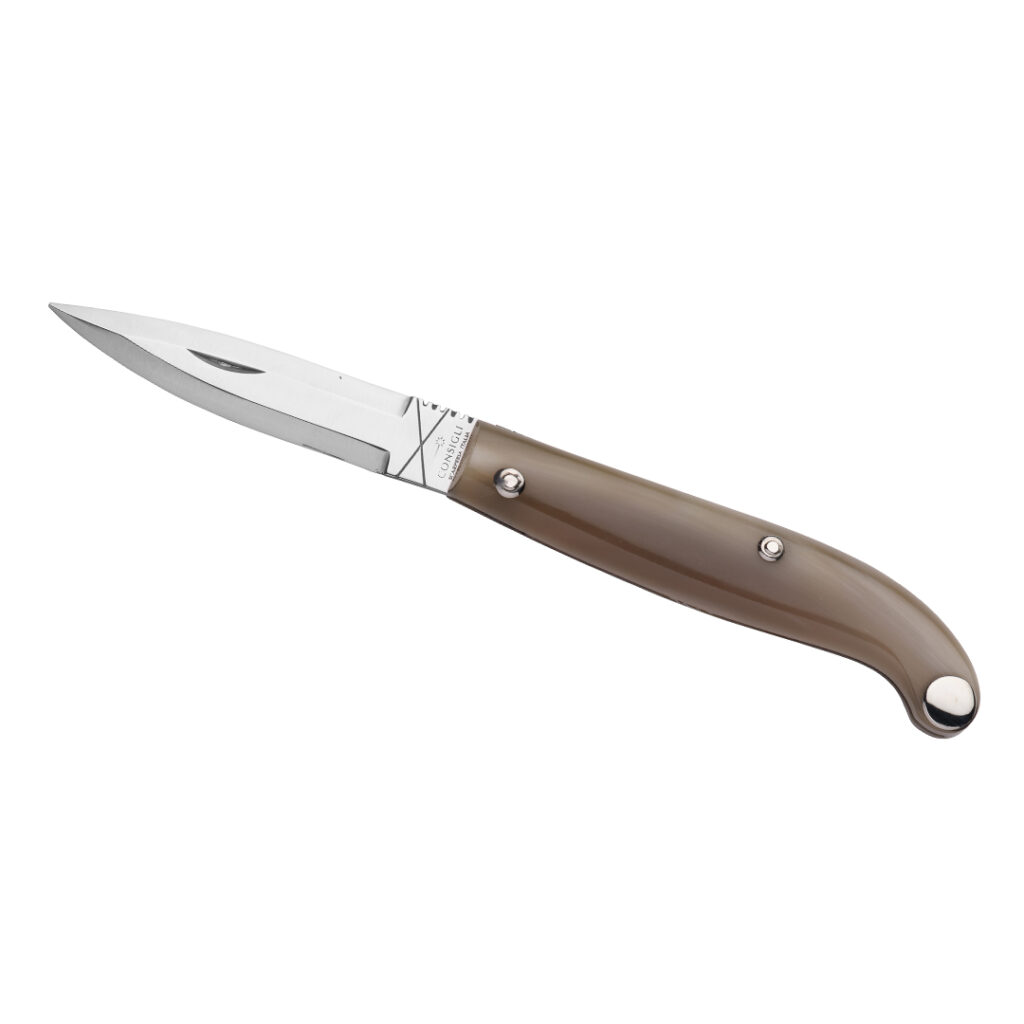
Region: Sicily and Lazio
Handle material: ox horn
The Tre Pianelle pocket knife derives its name from the three distinct planes on the blade. Traditionally, both edges of the blade were sharpened, but nowadays, only the internal or bottom edge is sharpened, while the top edge is left unsharpened to allow for secure folding. This knife, also known as Stiletto, serves mostly hunting and defense purposes.
Vernante Pocket Knife by Consigli
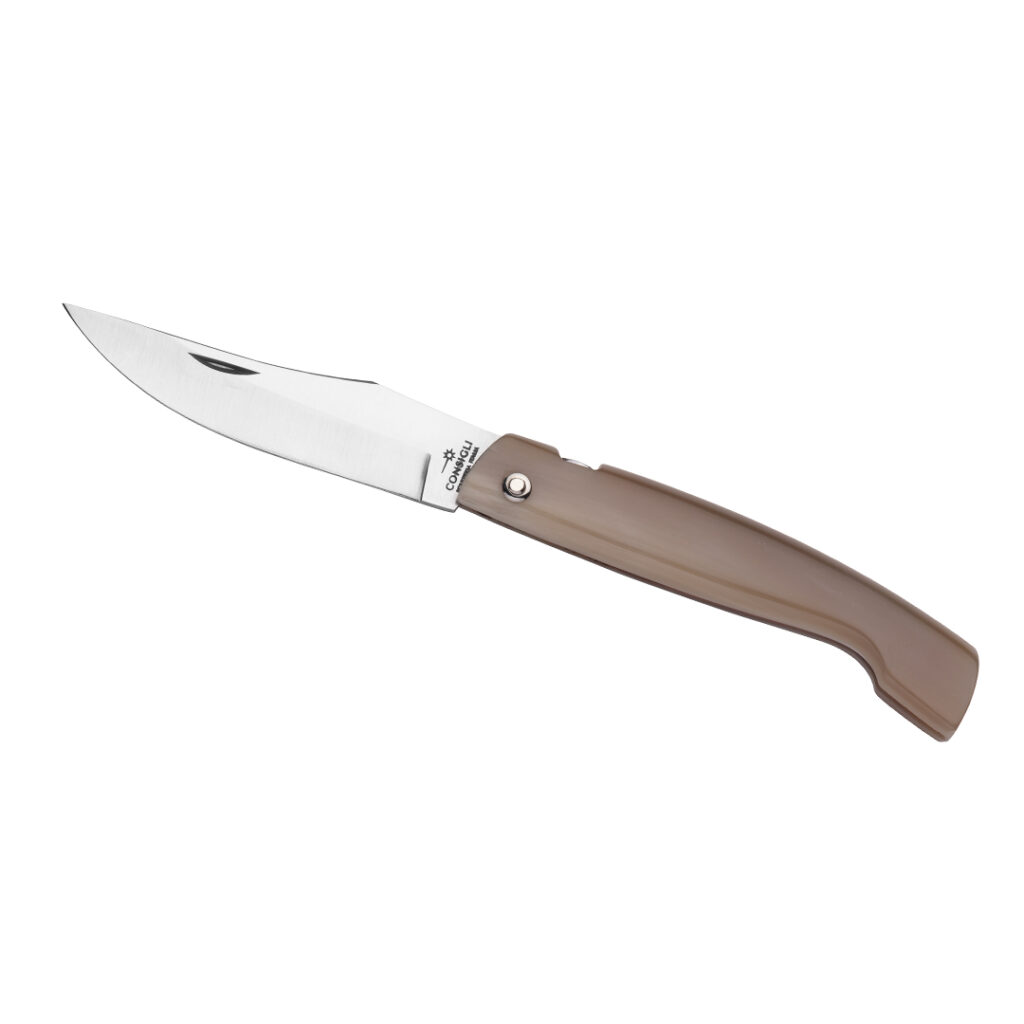
Region: Piedmont
Handle material: ox horn
The Vernante pocket knife is a testament to the craftsmanship of antique springless knives. Its blade is designed with a rear tab that halts the blade’s movement and also acts as a support for opening it. This knife was used by shepherds and farmers in their daily tasks, from shaving to slicing bread and cheese.
Zuava Pocket Knife by Berti and Consigli
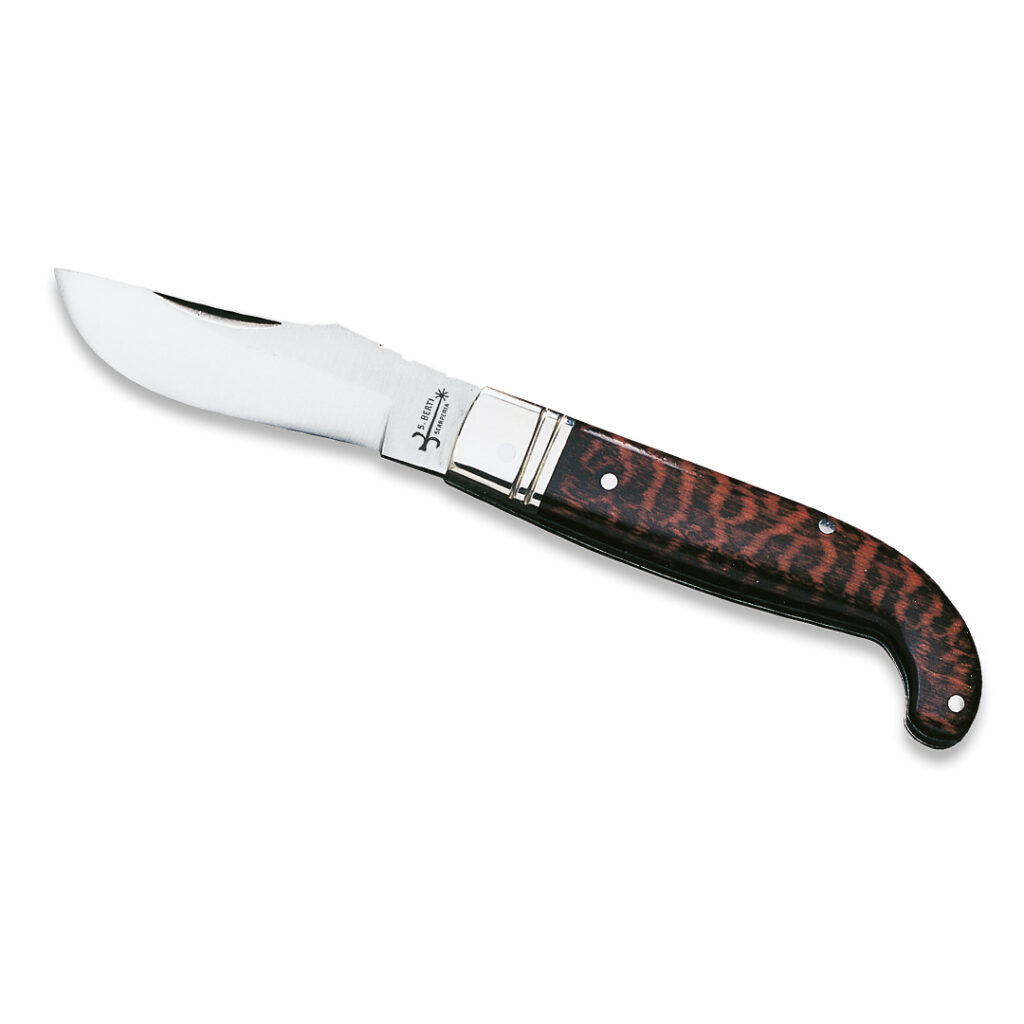
Region: Tuscany
Handle material: available in ox horn, snakewood and olive wood
The Zuava pocket knife is designed with an interior metal casing and solid metal heads, making it incredibly durable and long-lasting. It also features a bolster, which is a thick junction between the handle and the blade, providing strength and balance. This knife was traditionally a farmer’s tool, strong and versatile.
